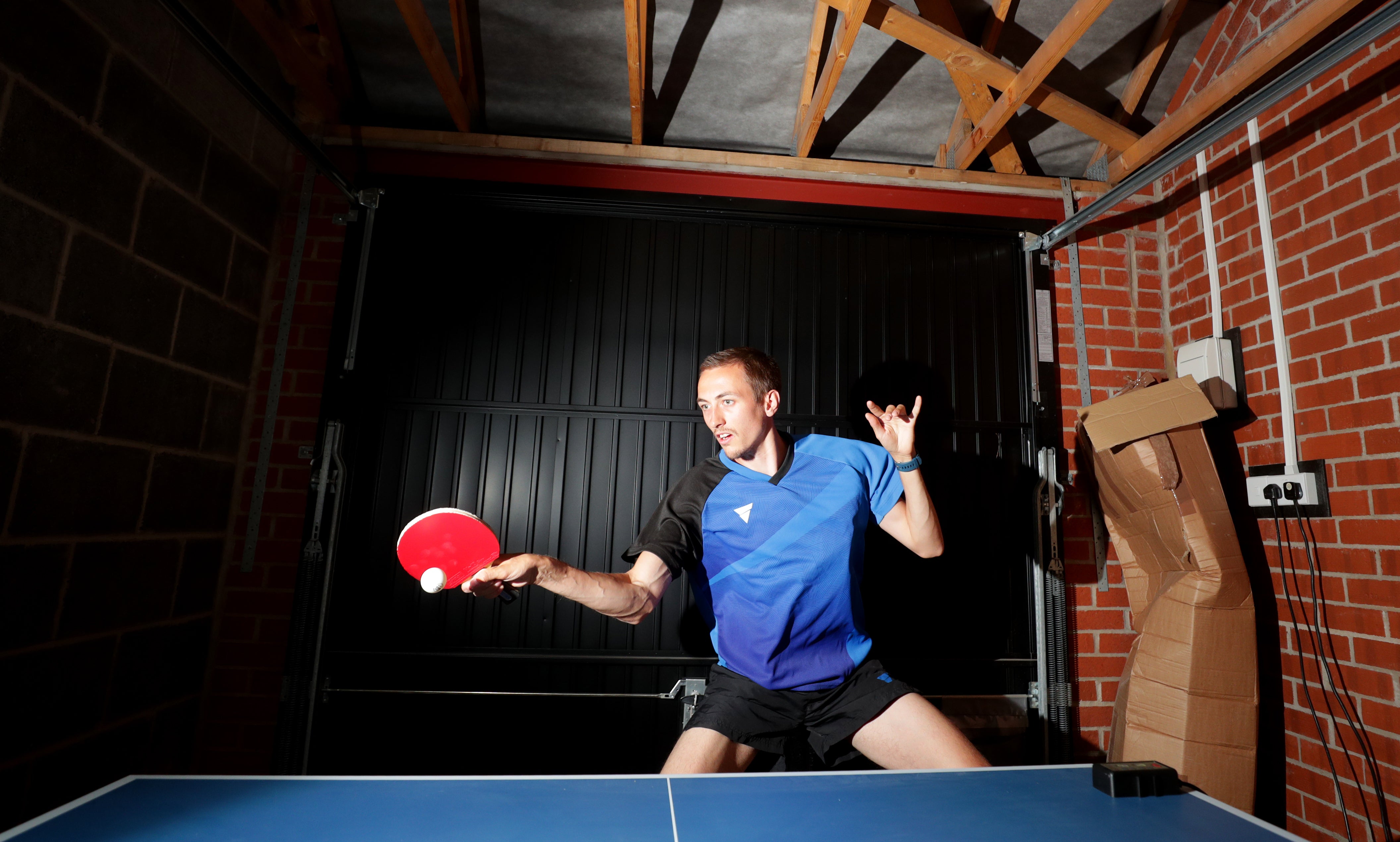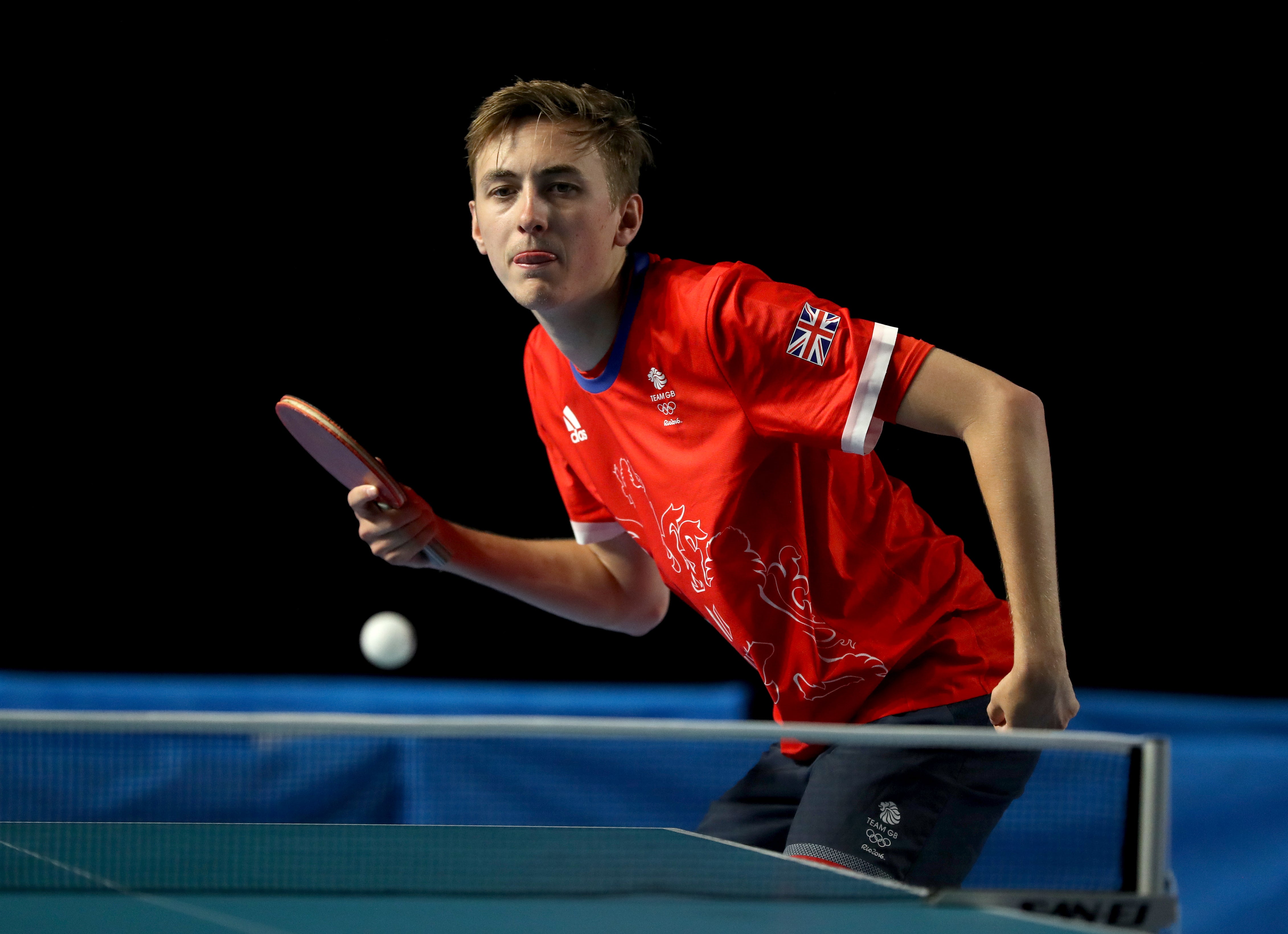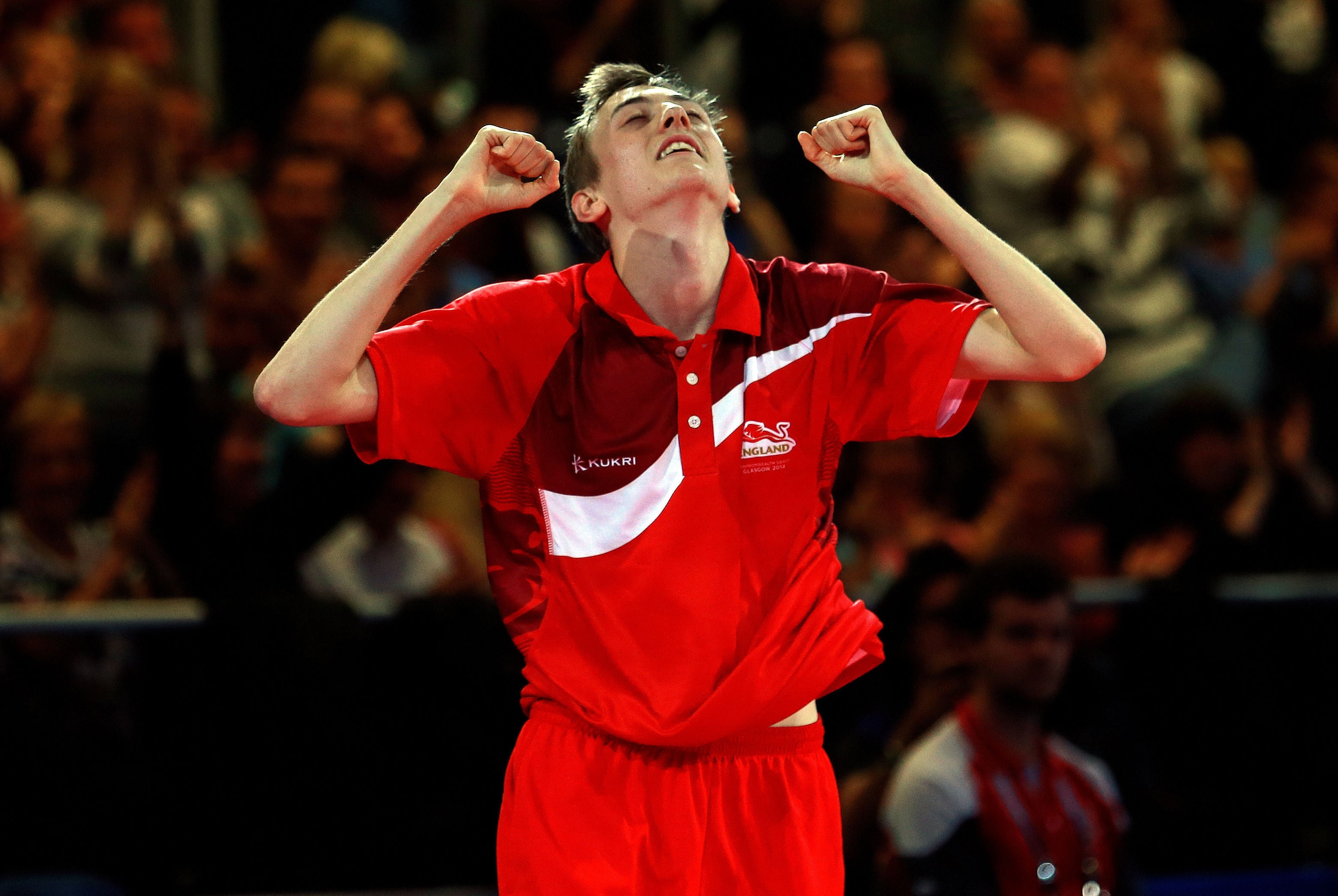
When Liam Pitchford sunk world number one Xu Xin in the semi-finals of the Qatar Open in March 2020, he could scarcely have comprehended the coming cataclysm that would turn his career and the entire sporting world upside down.
Within two weeks of a win that threatened the Chinese hegemony over Olympic table tennis medals, the Tokyo Games had been postponed and swathes of the planet plunged into pandemic lockdowns that rendered international competition effectively obsolete.
On a personal level for Pitchford, it rekindled mental health concerns he had first raised in a brave first-person piece for Esquire magazine two years earlier, in which he spoke of his struggle for motivation and a sense of purpose, even as he had risen exponentially through the ranks.
Pitchford would subsequently describe the delayed, post-lockdown Tokyo Games as “the worst of my career”, his previous expectations brutally dismissed by a first-round defeat in the men’s singles competition, and failure to qualify for the team event.
Ahead of the Birmingham Commonwealth Games, at which the rankings suggest Pitchford is in with a chance of four gold medals, the 29-year-old from Chesterfield spoke candidly about his determination to emerge better-equipped to overcome future setbacks.
“When lockdown hit I felt like I had no motivation and nothing to aim for,” Pitchford told the PA news agency. “I’d probably neglected my mental health for a while, but I felt it moving forward and forward and I realised I needed to get myself help.

“I talked to my coaches and I started seeing a sports psychologist again. I think I’m steadily getting back to the place I want to be. At the time I wasn’t in great shape, but I think I’m in a better place now and I can use that experience as a positive going forward.”
Pitchford first identified mental health issues in 2016, a breakthrough year in his career, in which he reached the last 32 of the men’s singles at Rio Olympics, and also claimed an historic bronze medal alongside Paul Drinkhall and Sam Walker at the World Team Championships in Malaysia.
And he is eager to disabuse the notion that mental health concerns experienced by elite athletes are necessarily related to the fulfilment of – or lack of – their sporting aspirations.
“I was playing some of my best table tennis feeling absolutely terrible off the table,” added Pitchford. “You don’t see it in elite-level sport because we put on a brave face but we could be really struggling in the background.

“I’m really happy that the perception has changed. I’m not the biggest name to speak out about it but it was a big thing for me to do at the time. Now that I’ve put everything out in the open I feel like I can go out to the table without any fears inside me.
“I think it has shaped me as a person as well. It was tough to ask for help but having got through that, I feel like I can get through anything, whether it be losing tough matches or having a bad day on or off the court.
“I don’t feel like I’m not going to get through it, or that brighter days aren’t coming.”
Pitchford made his Commonwealth Games debut as a 17-year-old in Delhi in 2010 and has amassed eight medals in the event, albeit having to wait until the 2018 team competition to claim his only gold so far.

Currently 19th in the world singles rankings – only Nigeria’s Quadri Aruna is higher in the Commonwealth – Pitchford can also expect top ranking in the men’s doubles alongside Drinkhall, whose own Games experience stretches back to his debut as a 16-year-old in Melbourne in 2006.
But Pitchford laughs off the prospect of multiple visits to the podium in Birmingham, secure in the knowledge that if things do not go to plan he will be in a much better place to deal with the repercussions and rebuild once again towards the Paris Olympics in 2024.
“The build-up to a Games is always stressful but I’m in a much better place and I know what I need to do,” said Pitchford.
“I know when I step on court in Birmingham I’ll be ready, and even if it doesn’t go as well as I want, I know I’m in a place where I can fight through it and be satisfied that I have given my all.”







